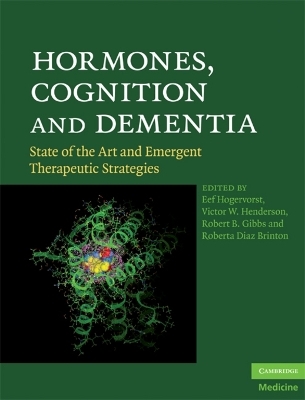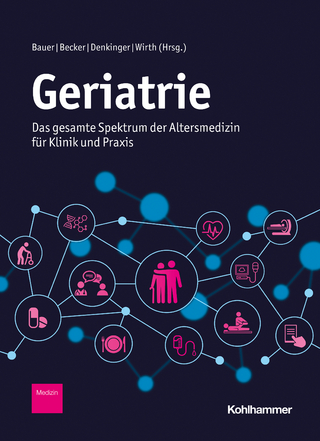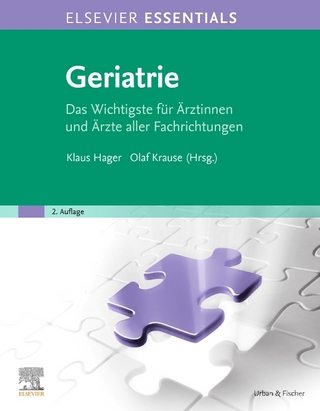
Hormones, Cognition and Dementia
Cambridge University Press (Verlag)
978-0-521-89937-6 (ISBN)
A decade ago, oestrogen-containing hormone therapy was viewed as a promising strategy for the prevention and treatment of dementia and age-related cognitive decline. However, treatment trials in women with Alzheimer's disease showed that oestrogens did not reverse cognitive impairment, and clinical trials in healthy older women indicated that oestrogens did not prevent cognitive decline. The Women's Health Initiative Memory Study trial even suggested an increased risk of dementia with treatment late in life. What happened? How are we to understand these findings? What are the implications for middle-aged and older women? What about testosterone, and what about men? And where do we go from here? This book brings together world-renowned experts in basic and clinical research on sex steroids, aging, and cognition to integrate existing findings with emerging new data, and offer challenging hypotheses on these key issues.
Eef Hogervorst is Professor of Biological Psychology, Department of Human Sciences, Loughborough University, Loughborough, UK; Visiting Senior Research Fellow, Department of Public Health and Primary Care, University of Cambridge, UK; Visiting Professor, Department of Epidemiology and Public Health, University of Respati, Jakarta, Indonesia. Victor W. Henderson is Professor of Health Research & Policy (Epidemiology) and of Neurology & Neurological Sciences, Stanford University, USA. Robert B. Gibbs is Professor of Pharmaceutical Sciences, University of Pittsburgh, Pittsburgh, PA, USA. Roberta Diaz Brinton is Professor of Pharmacology and Pharmaceutical Sciences, Neuroscience and Biomedical Engineering, University of Southern California, Los Angeles, CA, USA.
Preface; Part I. Estrogens and Cognition: 1. Women's Health Initiative Memory Study (WHIMS) program; 2. Identifying risk-factors for cognitive change in the Women's Health Initiative; 3. Estrogen therapy – relationship to longevity and prevalent dementia in the oldest-old; 4. The critical window hypothesis: hormone exposures and cognitive outcomes after menopause; 5. Animal studies that support estrogen effects on cognitive performance and the cholinergic basis of the critical period hypothesis; Part II. Varieties of Estrogenic Therapy: 6. The healthy cell bias of estrogen action through regulating glucose metabolism and mitochondrial function; 7. Alternative estrogenic treatment regimes and the Kronos Early Estrogen Prevention Study-Cognitive and Affective Substudy (KEEPS-CA); 8. The use of transdermal 17-estradiol in the treatment of Alzheimer's disease; 9. Alternative modes of treatment: pulsatile estradiol treatment; 10. In search of estrogen alternatives for the brain; Part III. Potential Modulators and Modifiers of Estrogenic Effects: 11. Progesterone regulation of neuroprotective estrogen actions; 12. Clinical data of estrogen's effects in the central nervous system; 13. Different forms of soy processing may determine the positive or negative impact on cognitive function of Indonesian elderly; 14. Hypothalamus-pituitary-adrenal axis activity in aging women; Part IV. Possible Genetic Factors Related to Hormone Treatment Effects: 15. Possible genetic polymorphisms related to sex steroid metabolism and dementia in women; 16. Genetics related to sex steroids: implications for Alzheimer's disease; 17. Apolipoprotein E, hormone therapy and neuroprotection; 18. Testosterone, gonadotrophins and genetic polymorphisms in men with Alzheimer's disease; Part V. Testosterone, Estradiol and Men, and Sex Hormone Binding Globulin: 19. Androgens and cognitive functioning in women; 20. The role of estradiol in testosterone treatment; 21. Endogenous testosterone levels and cognitive aging in men; 22. Clinical trials and neuroimaging studies of testosterone in men: insights into effects on verbal memory; 23. Testosterone therapy and Alzheimer's disease: potential for treatment and prevention in women; 24. Endogenous estradiol and dementia in elderly men: the roles of vascular risk, sex hormone binding globulin, and aromatase activity; 25. Testosterone regulates Alzheimer's disease pathogenesis; Part VI. Gonadotropin Effects: 26. Involvement of gonadotropins in cognitive function: implications for Alzheimer's disease; 27. The role of gonadotropins and testosterone in the regulation of beta amyloid metabolism; 28. Epilogue; 29. Concluding remarks; Index.
| Erscheint lt. Verlag | 24.9.2009 |
|---|---|
| Zusatzinfo | 9 Tables, unspecified; 4 Plates, color; 12 Halftones, unspecified |
| Verlagsort | Cambridge |
| Sprache | englisch |
| Maße | 192 x 252 mm |
| Gewicht | 800 g |
| Themenwelt | Medizin / Pharmazie ► Medizinische Fachgebiete ► Geriatrie |
| Medizin / Pharmazie ► Medizinische Fachgebiete ► Gynäkologie / Geburtshilfe | |
| Medizin / Pharmazie ► Medizinische Fachgebiete ► Neurologie | |
| ISBN-10 | 0-521-89937-0 / 0521899370 |
| ISBN-13 | 978-0-521-89937-6 / 9780521899376 |
| Zustand | Neuware |
| Informationen gemäß Produktsicherheitsverordnung (GPSR) | |
| Haben Sie eine Frage zum Produkt? |
aus dem Bereich


